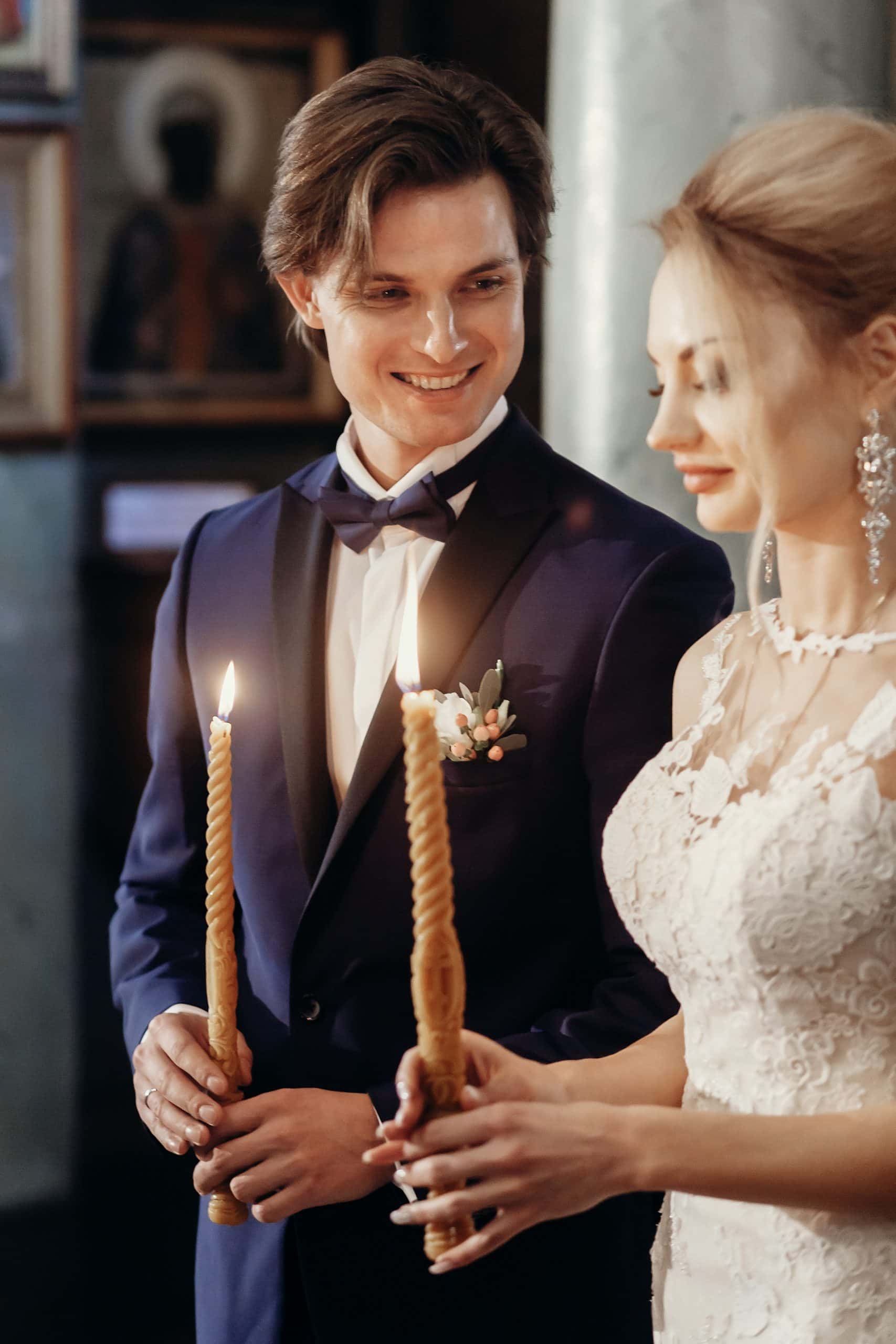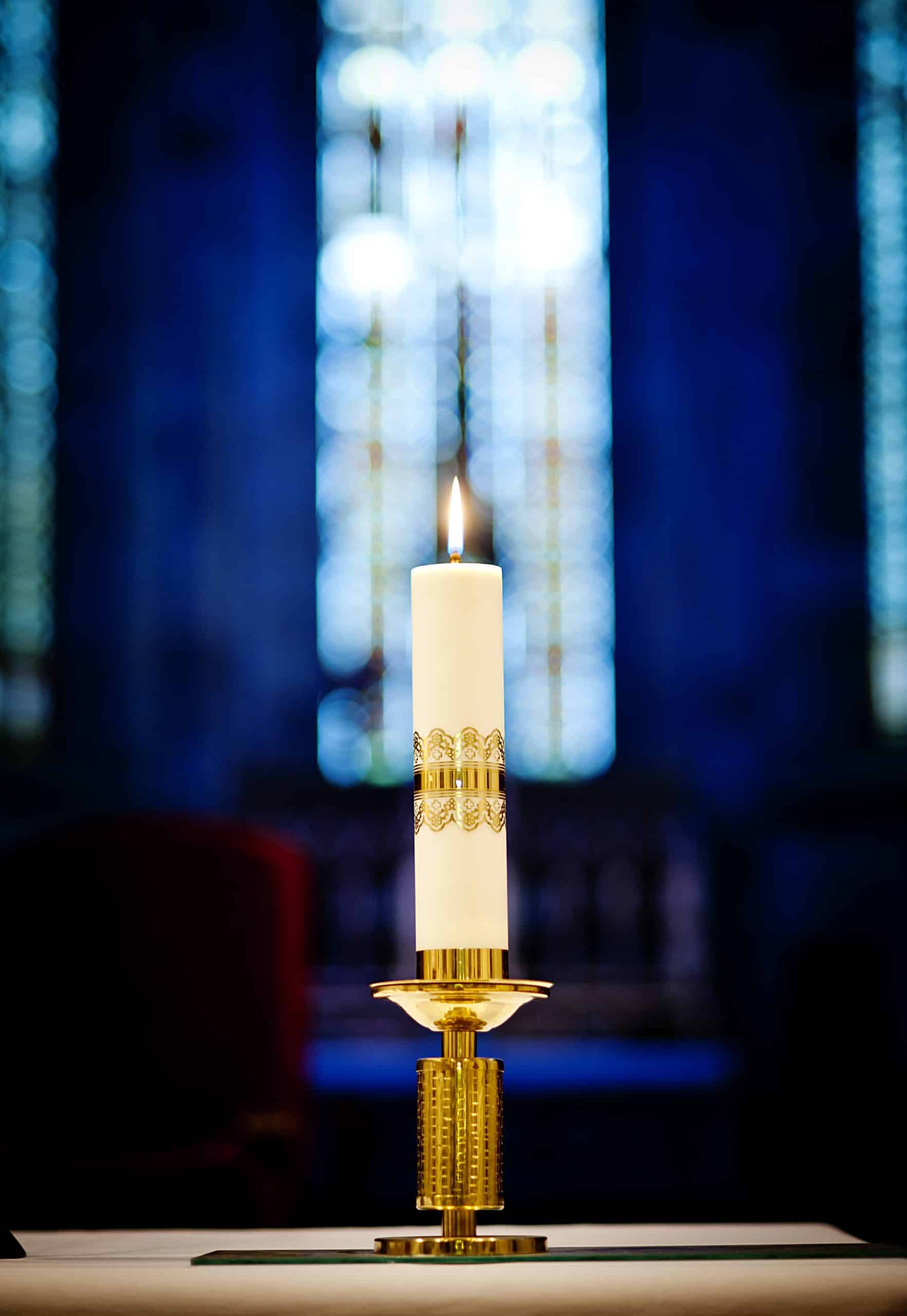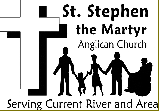Wedding – Couple Information

St. Stephen’s is pleased to help couples begin their married life together and walk with them on their Christian journey. We have found it helpful to share the following information that applies to a wedding or blessing of a civil wedding. We hope that a couple, if they are already not members of St. Stephen’s, will make St. Stephen’s their Christian home and participate in our ministry to the community.
To be married in the Anglican Church of Canada, the bride and groom must be aged 18 or older (if between 16 and 18, see the clergy); one must be baptized; both must be free to marry; and the wedding must be booked at least 60 days in advance.
The couple may have the banns read during a worship service instead of purchasing a license. For the reading of the banns, the congregation ought to know the bride and/or groom. If the bride or groom has been divorced, the couple must have a license, and the banns may also be read. In Thunder Bay, the Marriage License application forms are available from the Office of the City Clerk, 1st Floor City Hall, or from Service Ontario.
The place for a Christian wedding is normally a church building. If St. Stephen’s building is too small, discuss it with the clergy and the clergy can arrange for a larger Anglican Church building. As of June 2004, General Synod (the legislature of the Anglican Church of Canada) amended the Marriage Canon, allowing a wedding to take place in a location other than a church building, as long as the
sacred and public nature of Christian marriage will be upheld. In the Diocese of Algoma, the couple must be worshiping at the parish church in order for the clergy to do a wedding elsewhere.
The wedding fee for a wedding at St. Stephen’s is $500 or at a location different from St. Stephen’s $450, $100 deposit payable to St. Stephen’s before marriage preparation, and the remainder at the wedding. The Pastor in consultation with the Church Wardens may waive or reduce the fee if the couple/family is an identified financial supporter of the parish or in the case of financial need. The wedding fee includes marriage preparation inventory, the clergy’s time and use of the church building for the wedding. The wedding fee does not include the rental of the Parish Hall; see Parish Hall Rental. An honorarium may be given to the clergy, but it is not required.
Marriage preparation consists of the clergy reviewing the intent of marriage (BAS p. 541) with the couple, planning the wedding with the couple and the couple filling in an inventory, which is sent away to be processed and the clergy discusses it with them. Marriage preparation normally is a minimum of three sessions.
Couples are also requested to take the Deanery Marriage Preparation Course if it is offered. The Thunder Bay Anglican Churches may offer a Deanery Marriage Preparation Course that is held on a Saturday at the end of April/beginning of May. Topics include a personality assessment (Kiersey Bates), intimacy, communication skills, conflict management, financial management, children and parenting, spirituality of marriage and a candlelight dinner ends the gathering. A fee is charged for the course. Couples that have taken the course tell us that they find it was a positive experience.
The practice of applying to the Diocesan Matrimonial Commission for permission to have Anglican clergy conduct a wedding if the bride and/or groom had been divorced and the former spouse is still alive, was discontinued in the Diocese of Algoma in 2019.
If the bride or groom’s religious affiliation is Roman Catholic, for the marriage to be recognized by the Roman Catholic church, a dispensation from Canonical form is required. Contact the Roman Catholic clergy at least six months before the wedding. There is provision for Anglican and Roman Catholic clergy to do the wedding service together. If the bride or groom is divorced, the marriage will not be recognized unless an annulment is obtained from the Roman Catholic Church annulling the previous marriage.
The clergy are a good resource for helping the couple to plan their wedding service, and the clergy plans the service with them. The couple decides whether or not to have Eucharist, and which service book to use. The Book of Alternative Services of the Anglican Church of Canada (BAS) is the newer book, and the service of The Celebration and Blessing of a Marriage begins on page 541, or page 528 with Eucharist. When the BAS is used the couple may choose the scriptures, suggestions are found on page 549, and the people reading the scriptures and Prayers of the People. The Book of Common Prayer (BCP) is the older book, and the wedding service begins on page 564. In this service, scripture is not read and the clergy would do all of the service. For a wedding at a location other than an Anglican church, a bulletin that contains the wedding service must be printed so the people attending can take part.
If the bride or groom’s religious affiliation is of a faith other than Christian, the Book of Occasional Celebrations of the Anglican Church of Canada has a wedding service modeled on the service from the BAS, The Celebration and Blessing of a Marriage Between a Christian and a Person of Another Faith Tradition. The Eucharist is not celebrated at an inter-faith wedding.
The parish may print a bulletin, which has an order of service that refers people to the service book (BAS or BCP). If the couple would like special paper, they must provide it. If the couple prints their own bulletin, the clergy must approve it before it is printed.
For music at St. Stephen’s, the couple picks the music in consultation with the parish Music Director. Her fee is $75.00, and the couple pays her directly. To use another accompanist, the Music Director must grant permission and she is paid her fee. Other instrumentalists or special soloists may be engaged with in consultation with the Music Director and clergy.
For flowers and decorations, the couple makes their own arrangements, however, two bunches of fresh cut flowers for the altar are requested, and the Altar Guild changes the hangings to white. The couple should obtain the Altar Guild President’s phone number from the clergy, so that they can contact her to coordinate their flowers and decorations. The couple is responsible for cleaning up and removing from the church building any decorations that they put up and if the decorations are not removed, they will be kept for thirty days before disposing of them.
A wedding candle is optional. The individual candles are two small candles lit by mothers/family before the service begins, and just before the register is signed the couple uses them to light the single, large wedding candle. The couple purchases the candles and keeps them afterwards. The Altar Guild has a candle holder and can be of assistance in purchasing the candles: 2 @ ¾” and 1 @ 2¾ to 3″. Using a wedding candle at an outdoor service is not recommended as the wind may blow the flame out or knock the candle over.
Pictures may be taken as the bridal party processes in and as the wedding party leaves. During the wedding service pictures are not taken as it is a worship service, however, posed pictures may be taken after the service. The couple is responsible for advising their photographer of this policy.
The service may be recorded on video as long as the camera operator stays in one place and does not distract people from the service.
It would be appreciated if confetti was not thrown as it is difficult to clean up.
For an outdoor service, the couple is encouraged to obtain a public address system with a lapel mike for the clergy, and plans should be made for an alternate location in case of rain, wind too strong or temperature too cold or hot. The clergy will prepare a bulletin with the whole service in it. A pastel colour for the bulletin is recommended with an outdoor wedding to reduce the glare from the sun.



